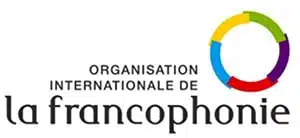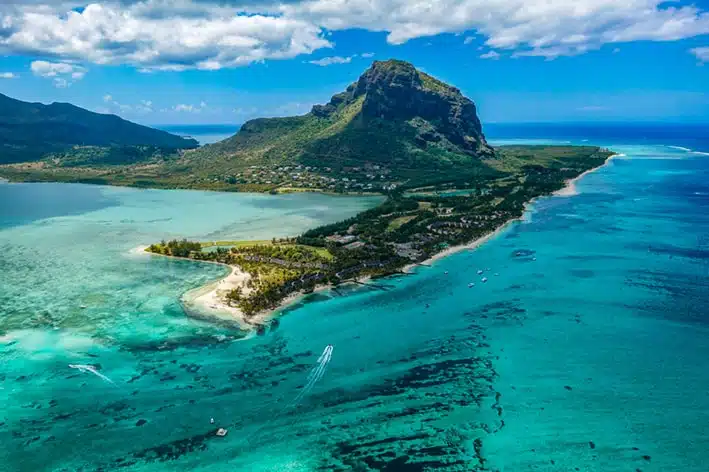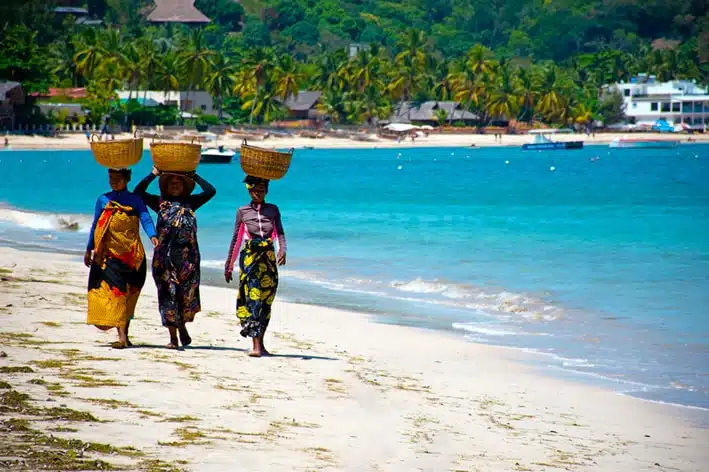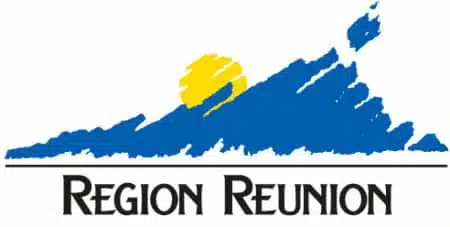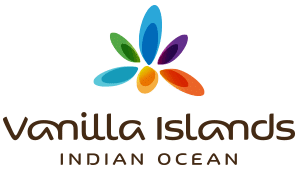In the heart of the Indian Ocean, the Vanilla Islands unfold their splendor and invite a journey beyond mere discovery: participatory tourism. Between authentic interaction with local communities, commitment to preserving nature, and immersion in cultural riches, this guide meets a vibrant archipelago and its inhabitants, actively contributing to more responsible and sustainable tourism.
Definition of Participatory Tourism
At its essence, participatory tourism is an approach that creates social connections. It empowers local residents to participate in developing tourism in their region or involves tourists in local activities. Participatory tourism thus represents a desire to place individuals at the heart of sincere and friendly relationships and can be practiced everywhere, in rural or urban environments. By fostering connections between locals and visitors, it’s an excellent way to discover the sense of hospitality in a new light. This type of tourism, known as alternative tourism, began to develop thanks to the rise of the Internet in the 2000s and a growing environmental awareness.
How Does Participatory Tourism Work in the Vanilla Islands?
In the archipelago of the Vanilla Islands, participatory tourism takes a unique and fascinating form. These islands, rich in their cultural and natural diversities, offer a perfect backdrop for a tourist model that values human exchanges and respect for the environment.
In the Vanilla Islands, participatory tourism allows travelers to immerse themselves in local life through various activities. This can translate into homestays, where visitors share the daily life of their hosts, participate in agricultural tasks, cook traditional dishes, or attend craft workshops. It’s an opportunity for tourists to truly understand the islands’ culture, far from the usual tourist circuits.
In Reunion, for example, this approach is embodied by initiatives such as guided hikes by locals through the UNESCO World Heritage-listed cirques and ramparts. These experiences allow us not only to discover the island’s natural beauty but also to listen to the stories and legends told by those who live there.
In the Seychelles, participatory tourism can take the form of ecological experiences, such as participating in marine turtle conservation programs or visiting nature reserves accompanied by local guides who explain the importance of preserving these unique ecosystems.
In Madagascar, the richness of biodiversity lends itself to ecotours where visitors can participate in reforestation projects or discover lemur conservation initiatives, offering a respectful interaction with the island’s exceptional fauna.
Participatory tourism in the Vanilla Islands is not limited to ecological or cultural activities. It also encompasses the local economy. Visitors are encouraged to support small businesses, whether it’s buying handicrafts, eating in local restaurants, or participating in workshops held by artisans.
This form of tourism not only enriches visitors’ experience but also contributes to the host communities’ sustainable economic development, ensuring that tourism’s benefits are distributed equitably. Thus, participatory tourism in the Vanilla Islands not only presents a more human and responsible face of travel but actively participates in preserving these islands’ cultural and natural treasures for future generations.
Guide to Participatory Tourism in the Vanilla Islands
Reunion:
Homestays: Immerse yourself in Reunionese life by staying with a local family. Share life moments, learn to cook an authentic cari, and discover Creole traditions.
Craft Workshops: Learn the art of weaving or participate in cooking workshops to master the secrets of local flavors.
Seychelles:
Marine Conservation: Get involved in environmental protection by participating in marine turtle and coral reef conservation programs.
Guided Tours: Choose excursions guided by Seychellois, who will introduce you to the endemic flora and local initiatives for biodiversity preservation.
Madagascar:
Ecotourism: Join expeditions in the forests of Madagascar to understand the importance of lemur conservation and their habitat.
Local Craftsmanship: Support the local economy by visiting workshops where you can learn the technique of Malagasy silk or wood carving.
Mauritius:
Cultural Immersion: Participate in traditional festivals and cultural workshops to immerse yourself in Mauritian cultural diversity.
Sustainable Agriculture: Discover organic farming by visiting local farms and participating in permaculture workshops.
Mayotte:
Community Hikes: Explore Mayotte’s unique biodiversity with local guides who will share their knowledge of the island and its ecosystem.
Culinary Heritage: Taste the flavors of Mayotte by cooking with local chefs who use fresh and traditional products.
Comoros:
Village Immersion: Integrate into the daily life of Comorian villages through homestays, experiencing the rhythm of ancestral traditions.
Natural and Cultural Heritage: Participate in heritage preservation by engaging in monument restoration or reforestation activities with local communities.
Another key element of participatory tourism in the Vanilla Islands is promoting cultural heritage through hands-on experiences. Travelers have the unique opportunity to engage in cultural preservation activities, such as participating in traditional dance and music workshops, learning about indigenous storytelling, or even joining in restoring historical sites. These activities provide a deeper understanding of the islands’ rich cultural heritage and contribute to its preservation. By directly involving tourists in these cultural experiences, the Vanilla Islands are showcasing their diverse history and traditions and ensuring that they are kept alive and passed down to future generations. This symbiotic relationship between tourism and cultural preservation is a testament to the power of travel as a tool for cultural exchange and mutual enrichment.


